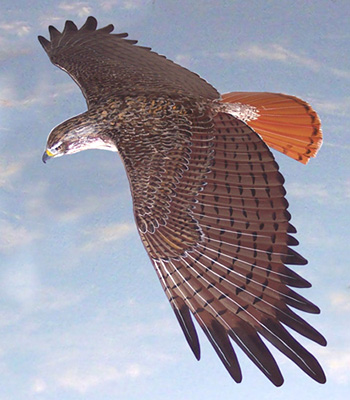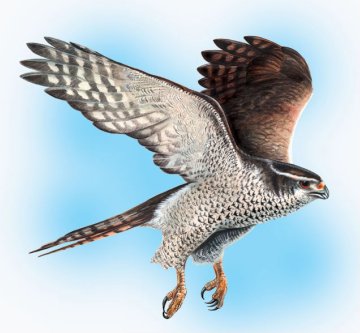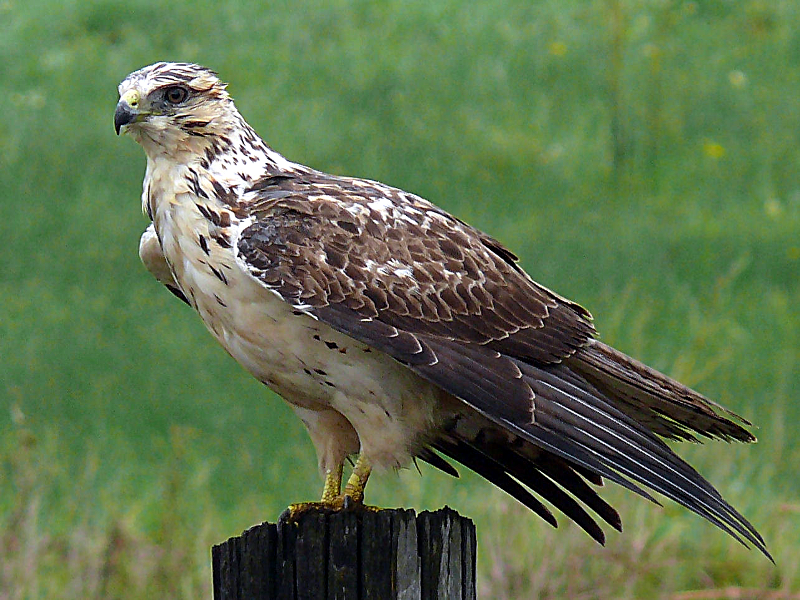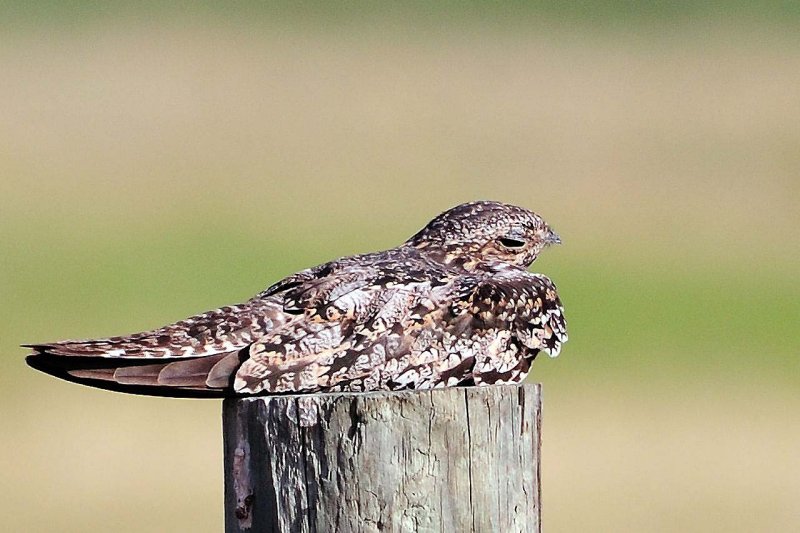
Watch the big bird soar
Till they come to the floor
Where the waterfalls pour
Soon the babies are more.

Sharp Hawks
The predators we usually call hawks are distinctly different from many other predators that seem to be similar. Hawks have very keen sharp eyes and are good hunters that like to hunt mostly at the evening time. When they see the little animals running about the bushes on the ground they will find an obscure spot on a branch where they are not noticed and watch for a mouse, bunny, or squirrel etc. dash by their perch and pounce on it. They will kill their prey with the claws whereas some other predators catch with the claws and kill with the beak
Hawks are all different sizes and in most kinds the female is the larger of the two very intelligent birds. The red-tailed hawk is the most common hawk. The mother and father will fly high together in the sky in a circular motion at mating season, when they get to a certain height the male will dive back down to the female and together they will raise back to the height once again. They both will repeat this until finally the male latches onto the female and they make a drop free-fall down to the earth.
Five eggs are laid by the female each year, and they will help each other make the nest and care for the eggs until they hatch in about a month. The mother and father will lovingly feed and care for them while all this time they stick to the nest. About six weeks later the baby hawks leave their nest for good.

Have you ever watched a hawk in pursuit of a timid dove? Instinct has taught the dove that in order for the hawk to seize his prey, he must gain a loftier flight than his victim. So she rises higher and still higher in the blue dome of heaven, ever pursued by the hawk, which is seeking to obtain the advantage. But in vain. The dove is safe as long as she allows nothing to stop her in her flight, or draw her earthward; but let her once falter, and take a lower flight, and her watchful enemy will swoop down upon his victim. Again and again have we watched this scene with almost breathless interest, all our sympathies with the little dove. How sad we should have felt to see it fall a victim to the cruel hawk!
We have before us a warfare,--a lifelong conflict with Satan and his seductive temptations."
MYP 103

THE HIDING-PLACE.
A GENTLEMAN sat beside an open window one summer day, and saw a little bird flying about in great alarm. A fierce hawk was swooping down to seize it in his 'cruel talons. There was no hiding place in leafy tree or shady vine, no cleft in the gray stone wall. But in its fright it 'flew right in at this open window, and took refuge, panting, under the coat of the gentleman beside it. It was tenderly cared for until the danger was past, and then it was set free to sing a glad song of rejoicing.
But a sweeter song sang itself in the heart of this good man, who was Charles Wesley, a devout Christian, and a great preacher; and taking his pen, he wrote the beautiful hymn we all so love to sing:—
"Jesus, lover of my soul,
Let me to thy bosom fly. "
How much we all owe to that little bird!
How many hearts have been comforted by those precious words, and how many more will be before they are forgotten. I do not believe they ever will be forgotten.
Think of that little bird, dear children, when you are in any trouble, and remember that you may fly to Jesus for safety, for he is our hiding place. As the hymn says:—
"All my trust on thee is stayed,
All my help from thee I bring;
Cover my defenseless head
With the shadow of thy wing."
Will you not learn this beautiful hymn?
—Morning Light
